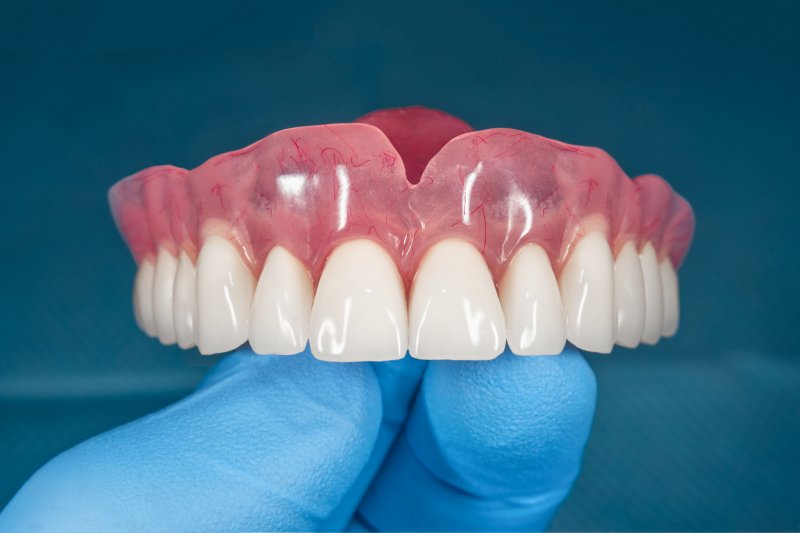Here’s What to Expect When You’re Getting Your Dentures Relined

Dentures can serve as an excellent solution to tooth loss that is both comfortable and aesthetically pleasing, but they will need adjustment every year or two as the mouth changes with age. This process is known as a denture reline, and it can keep your prosthesis in working order for the long haul. Here are some signs that your denture needs relining and what you can expect during the process.
What Causes the Mouth to Change Over Time?
The mouth naturally changes over time, and even more significantly after tooth loss. The jaw, like the other parts of the body, needs exercise to remain strong. The teeth provide this exercise through the chewing process. When the teeth are lost, so is this pressure, leading to the process of resorption in which the bone in the jaw is reabsorbed into the body. While dentures can restore some of this pressure, the mouth will still undergo resorption over time, affecting the way they fit. Ill-fitting dentures can often be corrected with relining.
Why Do Dentures Change Over Time?
A denture will also change over time due to normal wear-and-tear or improper maintenance. The chewing process can eventually cause cracks, chips, and fractures in the artificial teeth. Cleaning methods that are not dentist-approved like boiling or using improper cleansing agents can also deform the dentures. You should never try to adjust your ill-fitting dentures yourself, since this can cause damage to the dentures or to your soft oral tissues. Schedule a visit with your dentist to determine if they can be relined or need replacement if you experience any of the following symptoms:
- Food and plaque trapped within the denture.
- Sores and irritation at the denture’s contact points with soft tissues.
- A loose feeling in or frequent slipping of the dentures.
- Fungal infections that may result in bad breath.
How Does the Reline Process Work?
Denture relines come in soft and hard varieties:
Soft reline
A soft reline is typically used for patients who have recently undergone oral surgery to prevent the denture’s hard materials from abrasing any tender tissues. A soft material is placed at the points of contact between the denture and the sensitive tissue, cushioning the friction, preventing irritation, and providing a comfortable fit. This can be completed in a single dental visit.
Hard reline
Hard relines are usually only performed when the mouth is healthy enough to handle the new hard material, and they can take one or two days to complete. They are usually scheduled for every two years unless the dentist decides otherwise. Hard relines serve to adjust the fit of a denture to accommodate changes in the gums and jaw. These procedures involve marking changes on the base with a temporary putty so a better-fitting one can be manufactured.
Dentures are an asset to a patient’s health and confidence. Getting them adjusted as needed can keep them functional and comfortable. This way, they can keep you smiling brightly for years to come.
About the Practice
Fairfax Dental Group is dedicated to exceeding the expectations of patients in Fairfax, VA. Led by Drs. Marjun Ayati and Brenda J. Young, the skilled staff provides 5-star oral health services in a comfortable and welcoming environment. Services include general, cosmetic, emergency, and restorative dentistry in addition to denture treatments. If you’re concerned that your dentures might need relining, contact the office online or dial (703) 560-6301.

